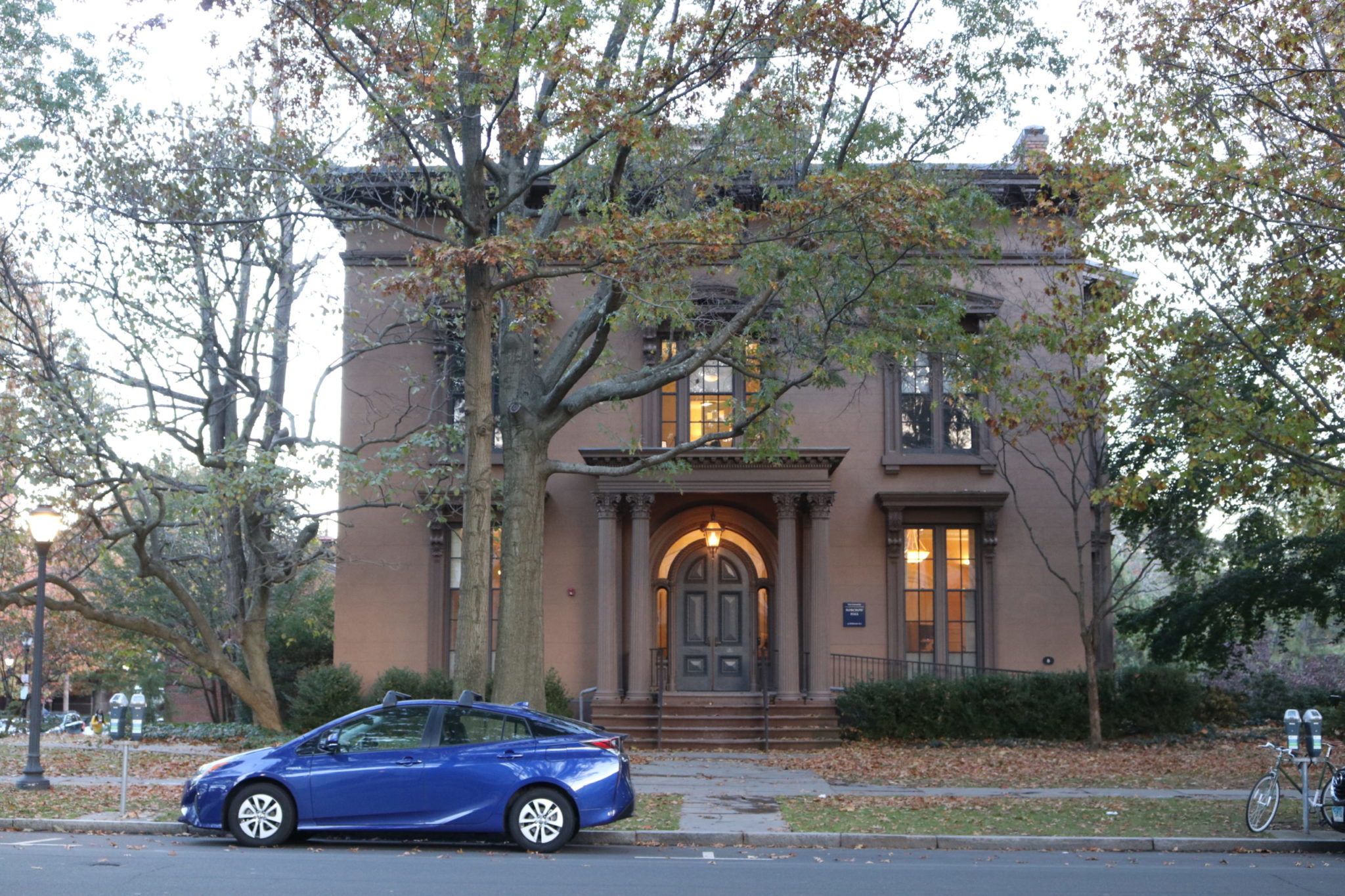Jackson affiliate spied for Qatari government before teaching at Yale
An Associated Press investigation found that former CIA officer Kevin Chalker helped the Qatari government secure the rights to host the 2022 World Cup prior to teaching two Jackson graduate seminars.

Yale Daily News
Kevin Chalker, who taught two classes at the Jackson Institute for Global Affairs in Fall 2018 and Spring 2020, had been working as a spy for the Qatari government since 2010, helping them secure the rights to host the 2022 FIFA World Cup and subsequently monitoring nations who voiced criticism over their bid, according to an investigation from the Associated Press.
Chalker worked for the Central Intelligence Agency for around five years as an operations officer before leaving to start his own private security firm, Global Risk Advisory. His firm was contracted by the Qatari government to gather cell phone data, among other intelligence, on other nations who were competing to host the FIFA World Cup — the world’s most popular sporting event. He was first hired in 2010, when Qatar was competing to host the tournament, and signed a further set of contracts with the Gulf state in the summer of 2017, a year before he began as a senior fellow at Yale. It is not clear when the contract ended or whether Chalker spied for the Qatari government while teaching at Yale. Chalker did not respond to multiple requests for comment.
“Whenever we consider bringing someone on as a senior fellow, we learn what we can about the person based on input from people who know them, and on whatever might be available in the press, etc.” Jim Levinsohn, director of the Jackson Institute, wrote in an email to the News. “In Mr. Chalker’s case, we were bringing on board a person with deep relevant experience in matters of policy and intelligence. Mr. Chalker taught one seminar in 2018 and another seminar in 2020, both to graduate students. Recent press coverage raises questions about Mr. Chalker’s professional activities that simply were not in the air during his time here.”
When Chalker was hired by the University in 2018, he was not required to fill out “any forms declaring any relationship like the one reported in the press,” according to Levinsohn, because University rules dictate that disclosure forms only apply to those who work more than half time, and “Mr. Chalker’s work fell below that threshold.”
“Jackson has well-defined rules which apply university-wide when it comes to Conflict of Interest disclosures and those rules have been followed,” Levinsohn added.
The documents obtained by the AP investigation reveal that the work for which Chalker’s firm was contracted included hiring an individual pretending to be a photojournalist to monitor a rival nation’s hosting bid, as well as creating a fake Facebook profile posing as an attractive woman to get close to a different target. The investigation also revealed that Chalker and his associates tried to obtain the cell phone data of at least one top FIFA official ahead of the 2010 vote.
According to the firm’s website, Global Risk Advisory is “an international strategic consultancy specializing in cybersecurity, military and law enforcement training, and intelligence-based advisory services.”
Qatar’s hosting of the soccer tournament drew international controversy, with allegations of bribery of FIFA officials and human rights abuses of workers.
Per the AP article, in one document Chalker promised that he could help Qatar “maintain dominance” over its foreign workers, many of whom helped construct the stadiums necessary to host the tournament. Qatar has a particularly large population of foreign workers, with only 10 percent of its population of 2.8 million people being Qatari citizens.
In a statement provided to the AP, representatives for Chalker said that he and his company would not “ever engage in illegal surveillance,” and claimed that many of the documents reviewed by the AP were forgeries.
The AP detailed that it took a series of steps to verify the hundreds of pages of documents provided to it by anonymous sources with connections to the work. Those steps included confirming details with Chalker’s associates and soccer officials, and “cross-checking contents of documents with contemporaneous news accounts and publicly available business records.”
During his time at the Jackson Institute, Chalker taught two classes. In the fall of 2018, he taught a graduate-level seminar, “Rethinking Iranian-American Competition and the Current Iran Strategy,” which was designed to replicate a consulting contract in which the students were called on to advise the U.S. Special Operations Force on the “long-term consequences of America’s newly articulated posture toward Iran.”
In the spring of 2020, Chalker taught another graduate seminar titled “Exploring Russian Utilization of Private Military Companies.”







